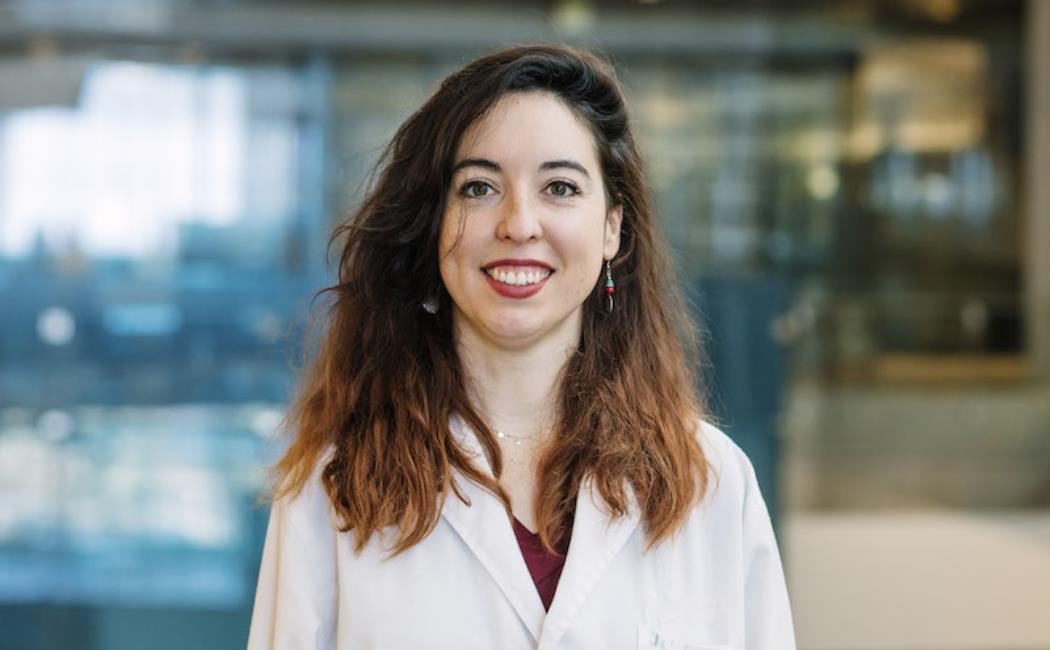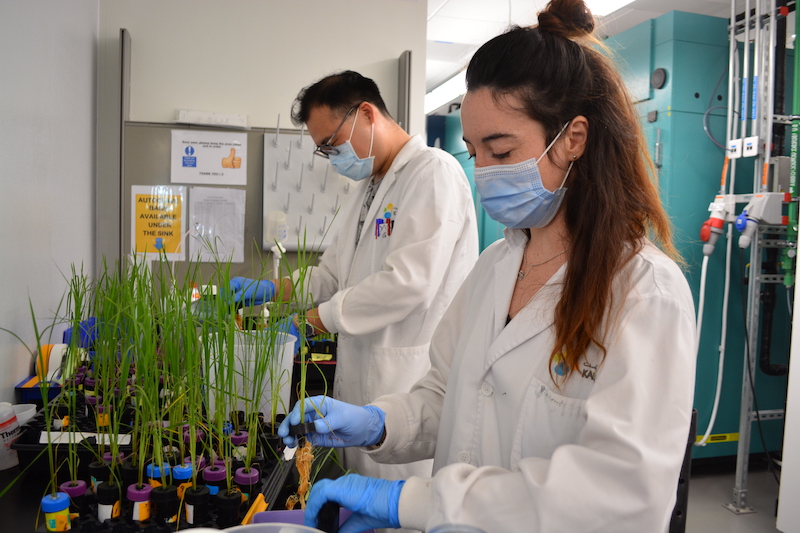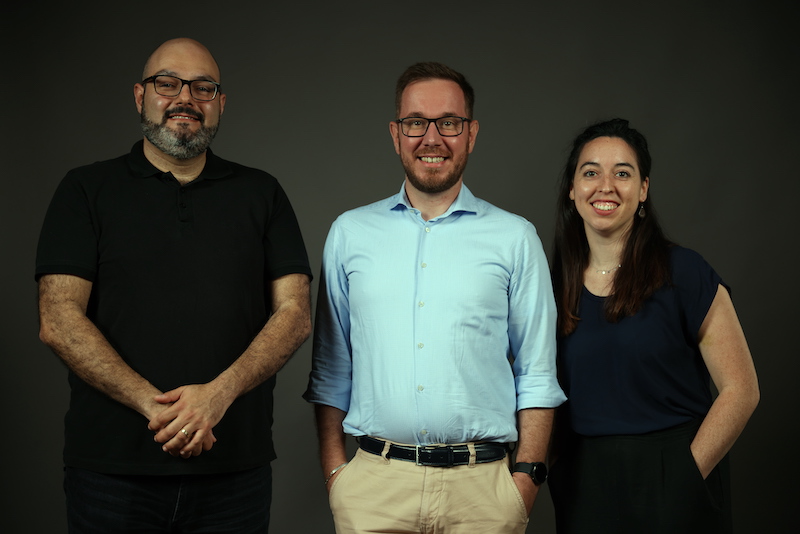


Justine Braguy had already started her PhD in Europe when she heard about KAUST. She was presented with the opportunity to do a joint degree across Germany and Saudi Arabia, before transferring fully to KAUST. Her desire to travel and discover new cultures inspired her to make the leap, joining KAUST in 2016 with no previous knowledge of the university.
“My strength is that I am ok with uncertainty,” says Braguy. “I packed one bag thinking I’d be staying at KAUST for six months, however, once there, it appeared that my work would require me to stay much longer.”

At KAUST, she started her PhD project from scratch and ended up staying for over five years to see it through; something that would not have been possible if she returned to Germany.
Her work mostly focused on understanding the role of plant hormones called Strigolactones in rice development through the generation of CRISPR-mutated plants. Strigolactones are chemical cues, released when rice plants (and other cereals) lack nutrients. These chemicals call in help from microbial partners in the soil to provide nutrients to the rice plant. However, Strigolactones got their name due to the fact that these chemicals also call in Striga or “witchweed”, a root parasite that infests fields through thousands of tiny seeds. Striga is a major threat that can endanger global food security, making her research a top priority.
“A routine experiment I conducted in my PhD required me to count thousands of these tiny seeds by hand,” she says. “This process alone was way too long, encroaching on my free time in the evenings and weekends. Finally, I brought the problem to my friend, Silvio Giancola, who worked in Computer Vision and AI, and we devised an AI-based tool to count Striga seeds automatically from still microscope images.”
The tool helped Braguy in her own work and had the power to help many of her colleagues, reducing their counting time from days down to minutes! Her problem-solving mindset led Braguy down a new path. When Braguy was preparing to close the last chapter of her PhD, the question of what to do next was answered with a startup opportunity, led at that time by Giancola who just passed the first TAQADAM selection phase.
 “Thya Technology, our company supporting this AI-based image identification tool, took off after my co-founders and I passed each step of the startup program and won funds to officially launch the business in March 2022,” says Braguy. “The way I combined my PhD and this startup somehow felt right, regardless of the shift of discipline that might be scary for some. Democratizing AI for everyone was in line with my interest for helping people, and the potential impact of our work continues to fill me with hope and happiness.”
“Thya Technology, our company supporting this AI-based image identification tool, took off after my co-founders and I passed each step of the startup program and won funds to officially launch the business in March 2022,” says Braguy. “The way I combined my PhD and this startup somehow felt right, regardless of the shift of discipline that might be scary for some. Democratizing AI for everyone was in line with my interest for helping people, and the potential impact of our work continues to fill me with hope and happiness.”
“It’s not easy though,” she says. “One of my biggest challenges, aside from learning each aspect of owning a business, is to ask for help. As PhD students, we are taught to ask for help as the last resort, once we have tried everything else. In business, asking for help early saves you precious time. I am still working on unlearning that mindset so I can reach out more easily to advisors and learn from others’ experiences.”
Leave a Reply
Your email address will not be published. Required fields are marked *